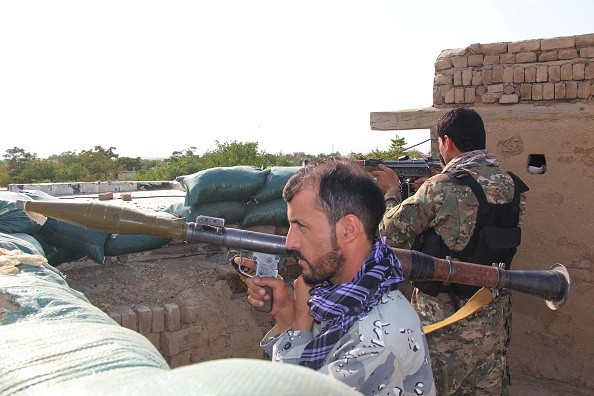As the resurgent militants made further gains throughout Afghanistan, a U.S. military source quoted US intelligence as predicting that Taliban fighters might isolate Afghanistan's capital in 30 days and potentially take it over in 90.

Taliban Gains Control of Vast Parts of Afghanistan
Since beginning a series of offenses in May to coincide with the commencement of the final departure of US-led foreign troops after a 20-year presence, the Taliban has already seized large swaths of rural Afghanistan, as reported in a recently published article in ALJAZEERA.
According to a top EU source, Islamists currently control 65 percent of Afghanistan and have seized or threatened to take 11 provincial capitals. Faizabad, in the northeastern province of Badakhshan, became the Taliban's 9th provincial capital on Wednesday.
The revised estimate of how long Kabul can hold out came as a consequence of the Taliban's fast advances as US-led foreign troops depart, according to the official, who spoke to a news outlet on condition of anonymity on Wednesday. The source went on to say that by putting up greater resistance, Afghan security forces might turn the tide, according to a published article in Reuters.
Capitals of Provinces Fall Under the Control of Taliban
Even though it lost a significant base in Kunduz, the loss of the capitals of Badakhshan, Baghlan, and Farah provinces increased pressure on the country's central authority to halt the advance. Afghan President Ashraf Ghani hurried to Balkh province, which is already encircled by Taliban-held territory, to enlist the assistance of warlords; many of whom have been accused of massacres and corruption. His army chief of staff was also removed.
While the Afghan capital of Kabul has not been directly threatened by the onslaught, the astonishing pace of the assault raises concerns about how long the Afghan government will be able to retain control of the remaining slivers of the nation. The government may be compelled to retreat to protect the capital and a few other cities, according to a published article in the Associated Press.
Moreover, the Taliban offenses' success raises doubts about whether they will ever return to Qatar for long-stalled peace negotiations aimed at bringing Afghanistan closer to an inclusive interim government as the West anticipated. Instead, the Taliban might seize control by force, or the nation could fracture into factions like it did when the Soviets left in 1989.
Death Rates Spike up in the Past Months
The government and its supporters have been taken aback by the Taliban's rapid progress. The organization, which ruled much of Afghanistan from 1996 to 2001 until being deposed for harboring al Qaeda leader Osama bin Laden after the September 11 attacks, seeks to depose the US-backed government and restore strict Islamic law.
In a recently published article in BBC News, more than 1,000 civilians have been murdered in the last month, according to the United Nations while the International Committee of the Red Cross reports that 4,042 injured individuals have been treated at 15 health institutions since August 1.
However, the Taliban denied that civilians were being targeted or killed; and they demanded an impartial inquiry. According to spokesman Suhail Shaheen, the organization has not targeted any people or their houses in any area and that the operations have been carried out with great accuracy and care.








